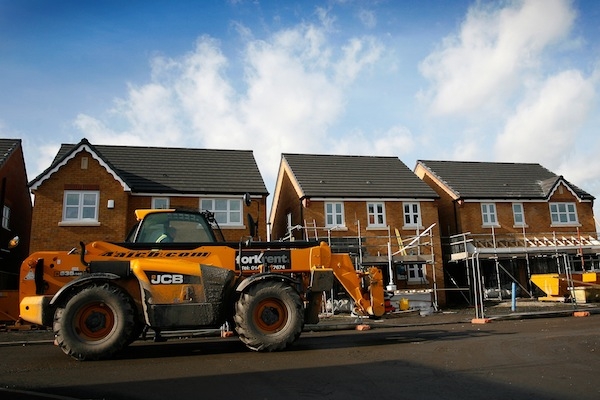Nick Clegg is frustrated. He told callers on LBC this morning that ‘one of the most frustrating dilemmas that we have face in government is that we have thrown a barrage of initiatives at this problem to get the construction sector and house-building sector moving, it just takes longer than, I think, you or I would probably like.’ He did suggest that ‘we will, over the coming years, see a real step change, but where I share frustration with you is it takes so long to translate these new devices for getting house-building going into shovels and spades being put into the ground’. But what might be even more frustrating is that this ‘barrage of initiatives’ might not deliver the number of homes that Clegg and Co hope for, even when that ‘step change’ does take place. And still more annoying is that ministers have decided there isn’t enough time or political capital to do anything about it.
If you’d followed only the headlines surrounding the development of the Localism Act and the National Planning Policy Framework, you’d think the government’s radical reforms to the planning system meant the green belt was about to disappear in a puff of smoke.
In reality, the system wasn’t liberalised quite as much as everyone was led to believe by the loud noise that surrounded the reforms. And the government made some strategic errors here. Instead of arguing that it was taking on the nasty planning system which prevents enough homes being built when we urgently need them because people are living longer (and, to a far lesser extent, immigration), it decided the best way to do things was to hurl abuse at its own supporters and engage in open warfare with the Tory press. The reforms were largely about speeding up a totally broken system, not overhauling it and giving local people a real say.
David Cameron’s decision to appoint Nick Boles as planning minister in the reshuffle suggested the government wanted to return to this issue. Boles’ subsequent media fanfares supported this idea. He made a new argument about communities possessing legitimate concerns about quality and infrastructure, pointing out that this country wasn’t running out of land at all.
But if the conversations I’ve had with ministers and key Downing Street figures recently are anything to go by, we won’t see anything new on planning this side of 2015. The Tory party hierarchy feel they have pushed their backbenchers too far on planning. They see the recent revolt over conservatories as evidence of this. The plan might be to revisit the planning system after that, when Tory MPs see that not enough homes are being built and that the government needs to go further, but this does of course rely on there being a Conservative-led administration after the general election. Yet housing numbers are at less than 100,000 starts in the last year. And the most toxic elements are yet to come – imposing new homes and targets from the centre – despite the fact that the government itself suspects this will get us to perhaps just 150,000 homes. This is not Boles’ fault. It was signed off by Eric Pickles well before he and the other new CLG ministers arrived.
It would be a grave waste of a talented minister if the attitude at the top of government is that enough has been done and the only thing anyone needs to think about is the 2015 manifesto. But the government doesn’t even need to declare open warfare again by bringing out new legislation or a whole new NPPF to signal a new direction. It could revisit a brief flirtation that it had at the start of the Coalition with the idea of self-build. Or it could remove national and local rules on planning that currently block locals from having a say. Policy Exchange recently argued more bungalows in areas with an elderly population would be popular – and the Daily Mail and Daily Telegraph endorsed more building. Hardly the unthinking NIMBYism assumed to be the Tory press default position by the Coalition.
In many ways, this is part of a wider story about what the next two years will be about. Will a lack of legislative push mean simply coasting towards 2015? Will the new Number 10 Policy Unit lead to an honest appraisal of where the government is doing well or badly, or merely be a cosmetic exercise? On the issue of planning, the least radical option, sticking with the top-down course already set out, is also the most risky. Indeed, if this is pursued, expect Tory backbench anger at their leadership to mount as they see unpopular decisions imposed in their area – and continued loss of Tory supporters to UKIP. How very frustrating.







Comments